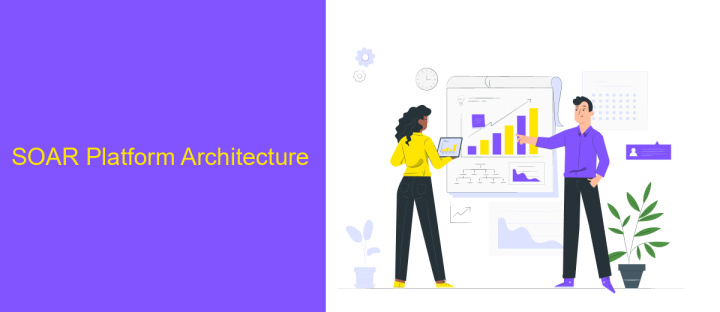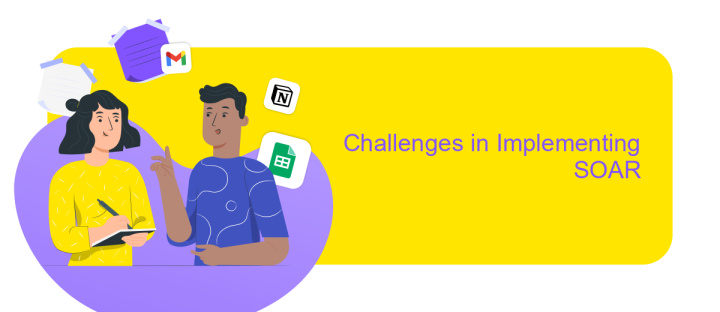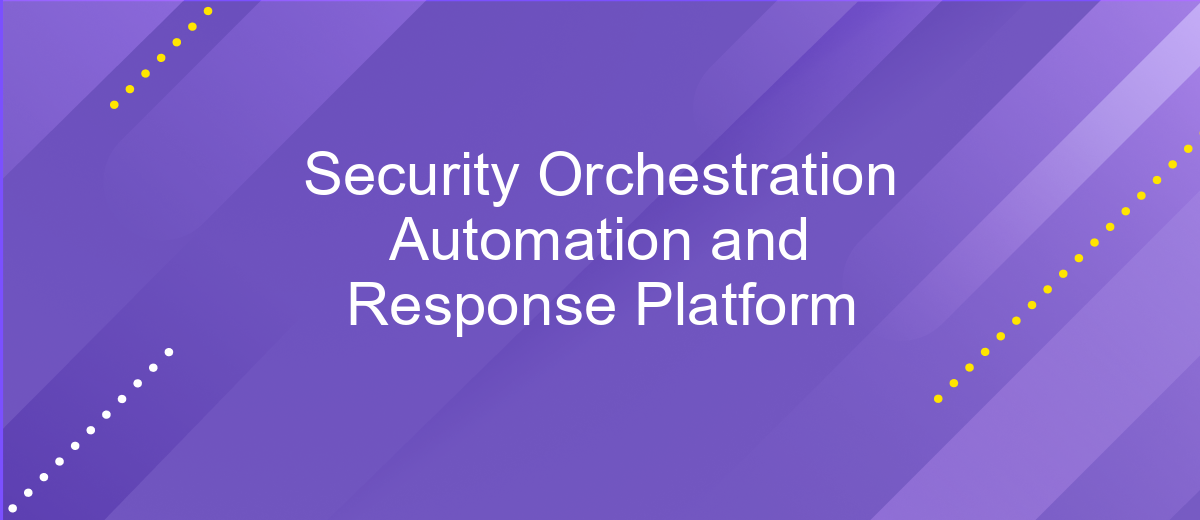Security Orchestration Automation and Response Platform
In today's rapidly evolving cybersecurity landscape, organizations require robust solutions to manage and respond to threats efficiently. Security Orchestration, Automation, and Response (SOAR) platforms offer a comprehensive approach to streamline security operations, automate repetitive tasks, and enhance incident response. This article explores the key features, benefits, and implementation strategies of SOAR platforms, empowering businesses to fortify their defenses against increasingly sophisticated cyber threats.
Introduction
In today's rapidly evolving digital landscape, organizations face an ever-increasing number of cyber threats. To effectively manage and mitigate these risks, businesses are turning to Security Orchestration, Automation, and Response (SOAR) platforms. These platforms integrate various security tools and processes, enabling teams to respond to incidents more efficiently and with greater precision.
- Streamlined incident response workflows
- Enhanced threat detection and analysis
- Automated repetitive security tasks
- Improved collaboration among security teams
- Comprehensive reporting and compliance
By leveraging SOAR platforms, organizations can not only reduce the time and effort required to address security incidents but also improve their overall security posture. This proactive approach ensures that businesses are better prepared to handle the complexities of modern cyber threats, ultimately safeguarding their critical assets and data.
SOAR Platform Architecture

The architecture of a Security Orchestration Automation and Response (SOAR) platform is designed to streamline and enhance the efficiency of security operations. At its core, a SOAR platform integrates various security tools and technologies into a unified system, providing a centralized hub for managing security alerts, orchestrating responses, and automating repetitive tasks. This integration is achieved through robust APIs and connectors that link different security products, enabling seamless data exchange and coordinated actions across the security ecosystem.
One of the key components of a SOAR platform is its ability to facilitate integrations with external services and tools. For instance, ApiX-Drive can be utilized to set up and manage these integrations effortlessly. ApiX-Drive's intuitive interface allows security teams to connect their SOAR platform with various applications and services without the need for extensive coding or manual configuration. This enhances the platform's capability to pull in data from diverse sources, trigger automated workflows, and ensure that all security measures are synchronized and responsive to emerging threats.
Benefits of SOAR Platforms

Security Orchestration Automation and Response (SOAR) platforms offer numerous advantages to modern organizations aiming to enhance their cybersecurity posture. By integrating various security tools and automating routine tasks, SOAR platforms streamline incident response processes and improve overall efficiency. This results in a more proactive approach to threat management, allowing security teams to focus on more strategic initiatives.
- Enhanced Efficiency: Automates repetitive tasks, freeing up valuable time for security analysts.
- Improved Incident Response: Provides faster detection and resolution of security incidents.
- Centralized Management: Integrates multiple security tools into a single platform for easier oversight.
- Reduced Human Error: Automation minimizes the risk of mistakes in incident handling.
- Scalability: Easily adapts to the growing needs of an organization.
By leveraging the capabilities of SOAR platforms, organizations can significantly reduce the time and effort required to manage security incidents. This not only enhances the overall security posture but also ensures a more resilient and responsive cybersecurity framework. Ultimately, SOAR platforms empower security teams to operate more effectively, safeguarding critical assets and maintaining business continuity.
Challenges in Implementing SOAR

Implementing a Security Orchestration, Automation, and Response (SOAR) platform can be a complex endeavor, fraught with numerous challenges. Organizations often face difficulties in integrating SOAR with their existing systems and workflows. The process requires a deep understanding of both the current security infrastructure and the capabilities of the SOAR platform.
Another significant challenge is the customization of playbooks to fit the unique needs of an organization. Pre-built playbooks may not align perfectly with specific security policies, necessitating extensive modifications. Additionally, the skill gap in specialized knowledge required to operate and optimize SOAR solutions can be a substantial hurdle.
- Integration with existing security tools and systems
- Customization of playbooks to match organizational needs
- Training and skill development for security personnel
- Ensuring real-time data accuracy and relevance
- Managing and mitigating false positives
Despite these challenges, the benefits of a well-implemented SOAR platform are significant. By addressing these hurdles through strategic planning, adequate training, and continuous optimization, organizations can enhance their security posture and respond more effectively to threats.
Future of SOAR
The future of Security Orchestration, Automation, and Response (SOAR) platforms is poised for significant advancements, driven by the increasing complexity of cyber threats and the need for rapid, coordinated responses. As organizations continue to adopt more sophisticated technologies, SOAR platforms will evolve to integrate seamlessly with a broader range of security tools and systems. This will enable more efficient data aggregation, real-time threat intelligence sharing, and automated incident response, reducing the burden on security teams and minimizing the time to mitigate threats.
Moreover, the integration capabilities of SOAR platforms will be enhanced through services like ApiX-Drive, which facilitate the seamless connection of various applications and systems. By leveraging such integration services, organizations can customize their SOAR workflows to suit their unique security needs, ensuring that all relevant data sources and tools are interconnected. This adaptability will be crucial as the cybersecurity landscape continues to evolve, allowing SOAR platforms to remain a pivotal component in an organization's defense strategy, capable of adapting to new threats and technologies with agility.
FAQ
What is a Security Orchestration, Automation, and Response (SOAR) platform?
How does a SOAR platform improve incident response times?
What types of integrations are typically supported by SOAR platforms?
How can I automate and integrate my existing security tools with a SOAR platform?
What are the key benefits of implementing a SOAR platform in my organization?
Time is the most valuable resource for business today. Almost half of it is wasted on routine tasks. Your employees are constantly forced to perform monotonous tasks that are difficult to classify as important and specialized. You can leave everything as it is by hiring additional employees, or you can automate most of the business processes using the ApiX-Drive online connector to get rid of unnecessary time and money expenses once and for all. The choice is yours!

